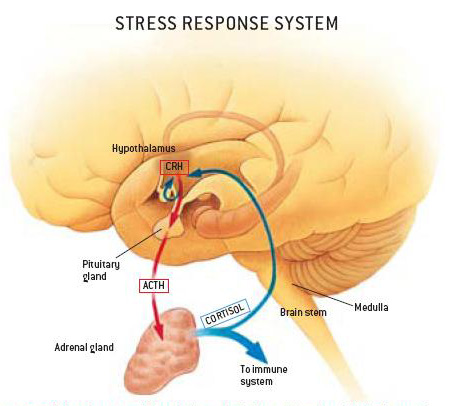“Results from my studies are revealing associations between a child’s behavior, biological profile and brain functioning before, during and after social interactions,” said Corbett, an assistant professor of clinical psychiatry in the Department of Psychiatry and Behavioral Sciences. “The ultimate hope is that these results will give us a better understanding of autism in order to develop individualized biological and behavioral treatments.”
In her quest for enhanced assessment and treatment of the social-emotional capabilities of children with autism, Corbett has focused on responses of the stress hormone cortisol during various potentially stress
 ful settings, including playground interactions. With
ful settings, including playground interactions. With “Although there is a great deal of variability in stress levels among children with autism, many of our subjects seem to find playground interactions stressful–even kids who appear to be enjoying themselves,” explains Corbett.
Her cortisol studies have also revealed that children with autism often have elevated cortisol levels toward the end of the day, in contrast to typically developing children. These studies of
cortisol rhythms and responses raise many questions: Do those with autism have heightened sensory sensitivity, leading to heightened stress? Do they have a genetic predisposition to stress? What are the characteristics of the children who show high versus low levels of stress?
“Research is ongoing in my lab to answer these questions,” Corbett said. “It’s clear that understanding the biology beyond the behaviors can help lead directly to new, more effective interventions for our kids with autism, a priority for so many of us in this field.”
Corbett has drawn on her acting background to found a new all-volunteer theatrical intervention program, the SENSE Theatre, which teams typically developing children with child actors with autism to perform musicals and plays for live audiences. Acting provides a natural environment for children with developmental disabilities to better understand emotional expression, learn
scripts for typical conversations, have a safe place for repeating those scripts and for developing friendships with peers their own age – and feel the sense of pride that comes from receiving applause from an appreciative audience.
The project also helps develop the concept of video modeling, a
For more information about Blythe Corbett's SENSE Theater, visit their website at: SENSEtheatre.com.
Reprinted with permission from UC Davis M.I.N.D. Institute "M.I.N.D. Matters"







